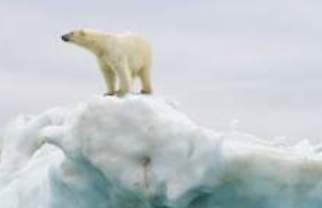
Melting Arctic ice releasing banned Industrial toxins
by Damian Carrington via gan - The Guardian UK Monday, Jul 25 2011, 9:18am
international /
environment /
other press
The warming of the Arctic is releasing a new wave of banned toxic chemicals that had been trapped in the ice and cold water, scientists have discovered.
The researchers warn that the amount of the poisons stockpiled in the polar region is unknown and their release could "undermine global efforts to reduce environmental and human exposure to them."
The chemicals seeping out as temperatures rise include the pesticides DDT, lindane and chlordane, made infamous in Rachel Carson's 1962 book Silent Spring, as well as the industrial chemicals PCBs and the fungicide hexachlorobenzine (HCB). All of these persistent organic pollutants (Pops) are banned under the 2004 Stockholm Convention.
Pops can cause cancers and birth defects and take a very long time to degrade, meaning they can be transported for long distances and accumulate over time. Over past decades, the low temperatures in the Arctic trapped volatile Pops in ice and cold water.
But scientists in Canada and Norway have now discovered that global warming is freeing the Pops once again. They examined measurements of Pops in the air between 1993 and 2009 at the Zeppelin research station in Svalbaard and Alert weather station in northern Canada.
After allowing for the decline in global emissions of Pops, the team showed that the toxic chemicals are being remobilised by rising temperatures and the retreat of the sea ice, which exposes more water to the Sun. For example, air concentrations of PCBs and HCBs have shown a rising trend from about 2004 onwards. Their work is published in the journal Nature Climate Change.
Hayley Hung, a member of the air quality research division of Environment Canada and of the team, said its work provided the first evidence of the remobilisation of Pops in the Arctic. "But this is the beginning of a story," she told the Guardian. "The next step is to to find out how much is in the Arctic, how much will leak out and how quickly."
Hung said that, with the exception of lindane, there was little existing knowledge of the scale of the Pops stored in high latitude regions: "We really don't know."
The fate of the frozen Pops depends on the speed of warming in the Arctic – it is currently heating up much more quickly than lower latitudes – as well as how the chemicals interact with snow and rain. Pops accumulate in fats and are therefore concentrated up the food chain, but Hung cautions that food chains themselves in the Arctic may be altered by climate change.
© 2011 Guardian News and Media Limited
http://www.guardian.co.uk/world/2011/jul/24/melting-arctic-ice-banned-toxins-pops